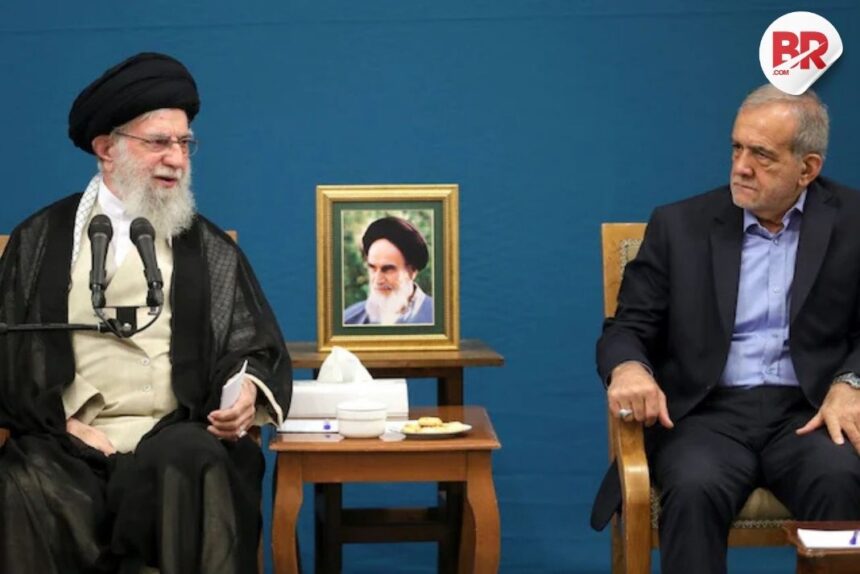
The US Iran Nuclear Talks: A New Chapter in Global Diplomacy
The fate of the Iran nuclear deal, officially known as the Joint Comprehensive Plan of Action (JCPOA), rests on the upcoming round of talks between the United States and Iran. These talks are set to take place in Rome, and the world is watching closely as both sides prepare to negotiate once more.
Why Rome? And Why Now?
After months of stalled progress, the decision to hold the next round of talks in Rome is significant. While the reasons for choosing Rome remain unclear, it’s likely a neutral location that both Washington and Tehran find acceptable. Timing is also crucial. With Iran’s nuclear program advancing and rising tensions in the Middle East, the pressure to find a diplomatic solution is stronger than ever.

What’s at Stake?
The JCPOA, signed in 2015, offered Iran sanctions relief in exchange for strict limitations on its nuclear activities. However, when the US withdrew from the deal in 2018 under President Trump and reimposed sanctions, the agreement began to unravel. Since then, Iran has gradually moved away from its commitments, enriching uranium beyond the agreed-upon limits.
Also read: ‘Big Change Is Coming’: Trump Signals Iran Policy Shift, Global Powers on Edge
For the US, the primary goal is clear: prevent Iran from developing nuclear weapons. Negotiators hope that reaching a new agreement—or reviving the original JCPOA—will provide a diplomatic path to this goal. For Iran, the stakes are just as high. Tehran seeks to lift sanctions and reintegrate into the global economy, claiming that the benefits promised under the original deal should be honored.
The Challenges Ahead
While both sides have expressed a willingness to engage in dialogue, the road to a successful agreement is filled with obstacles. Here are some of the key challenges negotiators must overcome:
- Sanctions Relief: Iran demands a guarantee that all sanctions imposed by the Trump administration will be lifted. However, the US is hesitant to make such a broad commitment, fearing it would lose leverage in future negotiations.
- Verification: A robust verification mechanism is crucial to ensuring that Iran complies with its nuclear obligations. International inspectors will need full access to monitor Iran’s nuclear facilities.
- Future Guarantees: Iran wants assurances that the US will not withdraw from the agreement again. However, offering such guarantees is difficult, given the shifting political landscape in the US.
- Regional Issues: While not directly related to the nuclear program, Iran’s regional activities, including support for proxy groups in the Middle East, are a concern for the US and its allies. These issues could complicate negotiations.
Also Read: Are B-2 Bombers a Warning to Iran? Pentagon Says ‘Let Them Decide’
India’s Perspective
India plays a critical role in the success of the US Iran nuclear talks. As a major importer of Iranian oil, India has felt the economic impact of US sanctions. If the JCPOA is restored, it could lead to sanctions relief for Iran, allowing India to resume oil imports and boost its economy. A stable Middle East is also key to India’s energy security and regional stability.
India has consistently supported diplomatic efforts to resolve the Iranian nuclear issue. As a responsible nuclear power, India understands the importance of preventing nuclear proliferation. An improved relationship between the US and Iran could open the door for further collaboration between India and Iran.
What’s Next?
The upcoming talks in Rome represent a critical moment for global diplomacy. While a breakthrough is not guaranteed, the very fact that negotiations are continuing is a positive sign. Here are some possible outcomes:
- Successful Agreement: A new deal or a revival of the JCPOA could lead to sanctions relief and Iran’s return to compliance with nuclear obligations.
- Prolonged Negotiations: Talks may stretch on for months, or even years, with slow progress and setbacks along the way.
- Collapse of Negotiations: If talks break down, tensions could escalate, potentially leading to military conflict.
The success of the talks will depend on both sides’ willingness to compromise. The stakes are high, and failure could have serious consequences. The US Iran nuclear talks in Rome could ultimately play a pivotal role in global security, especially for nations like India that rely on regional stability for energy security and economic growth.
Also Read: Khamenei Slams U.S. Hypocrisy: A Bitter Mockery of Trump After Oman Talks












